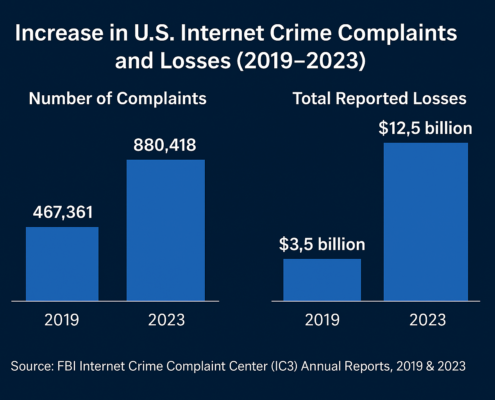Understanding Proxy Servers: How They Work
26 January 2023A proxy server serves as an intermediary between you and the internet. Learn the fundamentals of proxies with our comprehensive, easy-to-follow guide.
Understanding how the internet works is vital, especially given the risks of data breaches and identity theft that come with online activities like browsing dog pictures, reading the news, and shopping for deals.
So, what happens when you browse the web? You might be using a proxy server at your office, a Virtual Private Network (VPN), or you might be savvy enough to always use some form of proxy. Stay informed with our expert insights and thorough analysis on the significance of proxy servers in today’s digital world.
In this post, we’ll dive into:
What Is a Proxy Server?
A proxy server serves as a bridge between you and the internet, acting as a middleman that separates end users from the websites they visit. Depending on your specific needs, usage, or company policies, proxy servers can offer varying levels of functionality, security, and privacy.
When using a proxy server, your internet traffic is routed through it on its way to the address you have requested. The response from the requested address then travels back through the same proxy server (with some exceptions), which subsequently forwards the received data to you.
Why Use a Proxy Server Instead of Direct Access?
Modern proxy servers do much more than merely forwarding web requests. They enhance data security and network performance in several ways. Acting as firewalls and web filters, proxy servers provide shared network connections and cache data to accelerate common requests. A high-quality proxy server protects users and internal networks from the myriad of threats lurking on the internet. Additionally, they can offer a significant level of privacy.
How Do Proxy Servers Work?
Every device on the internet needs a unique Internet Protocol (IP) address, akin to a street address for mail delivery. This IP address ensures that data sent over the internet reaches the correct destination.
A proxy server acts as an intermediary between your computer and the internet, equipped with its own IP address recognized by your device. When you initiate a web request, it is first routed to the proxy server. The proxy server then forwards your request to the target web server, retrieves the response, and directs the web page data back to you for display in your browser.
By channeling your web requests, the proxy server can modify outgoing data while delivering the expected information. It can mask your IP address, preventing the web server from determining your exact location. Additionally, it can encrypt your data, ensuring security during transit. Furthermore, a proxy server can control access to specific web pages based on IP address.
In an era where online privacy and data security are paramount, understanding the function and benefits of proxy servers is critical for both individuals and organizations. Stay informed, stay secure.
Benefits of Using a Proxy Server
Organizations and individuals have numerous compelling reasons to utilize a proxy server, including enhanced security, improved performance, and access to restricted content. Proxies offer a robust solution for safeguarding data, optimizing network efficiency, and navigating geo-blocked resources.
Control Internet Usage
Organizations and parents often set up proxy servers to monitor and regulate how their employees or children use the internet. Companies can block access to specific sites during work hours, preventing distractions without needing to redirect users with a notice. Additionally, proxy servers can log all web requests, allowing organizations to keep track of time spent on non-work-related activities.
Bandwidth Savings and Improved Speeds
A well-configured proxy server can significantly enhance overall network performance. By caching popular websites locally, a proxy server reduces the need to fetch the same data repeatedly. For instance, when multiple users access www.varonis.com, the proxy server can serve the cached version to all of them, conserving bandwidth and boosting network speed.
Privacy Benefits
Proxy servers can help users browse the internet more privately by altering the IP address and other identifying information in web requests. This means the destination server cannot easily trace the original request back to you, safeguarding your personal information and browsing habits.
Enhanced Security
Beyond privacy, proxy servers offer additional security advantages. They can encrypt web requests, protecting them from prying eyes. They can also block access to known malware sites. Organizations often pair proxy servers with Virtual Private Networks (VPNs) to ensure remote users connect securely, gaining access to necessary resources while protecting company data.
Access to Blocked Resources
Proxy servers enable users to bypass content restrictions imposed by companies or governments. For instance, if a local sports event is blacked out online, you can use a proxy server in a different location to watch the game. Similarly, in countries with strict internet censorship, proxy servers provide citizens with access to an uncensored internet.
By understanding these advantages, you can see why proxy servers are an essential tool for both individuals and organizations. However, it is also important to be aware of the associated risks, which are discussed below.
Risks of Using Proxy Servers
When selecting a proxy server, it’s essential to exercise caution, as several common risks can undermine the potential benefits:
Risks of Free Proxy Servers
The old adage “you get what you pay for” holds true. Utilizing free proxy server services can be highly risky, even those supported by ad-based revenue models.
“Free” often means minimal investment in backend hardware or encryption, leading to performance issues and potential data security vulnerabilities. Be particularly wary of completely free proxy servers, as some may be designed to steal your credit card information.
Logging of Browsing History
Proxy servers hold your original IP address and web request information, which may be stored unencrypted. Verify if the proxy server logs and saves this data and understand their data retention and law enforcement cooperation policies.
If you’re using a proxy server for privacy, but the provider logs and sells your data, you’re not getting the privacy you expect.
Unencrypted Proxy Servers
Using a proxy server without encryption is equivalent to not using one at all. Without encryption, your requests are transmitted as plain text, making it easy for eavesdroppers to capture usernames, passwords, and account information. Ensure that any proxy server you use offers full encryption capabilities.
Types of Proxy Servers
Proxy servers are not one-size-fits-all; their functionalities can vary significantly. Understanding the specific capabilities of your proxy server is crucial to ensure it aligns with your needs.
Transparent Proxy
A transparent proxy announces its presence to websites and passes along your IP address, effectively identifying you to the web server. This type of proxy is commonly used by businesses, public libraries, and schools for content filtering due to its ease of setup on both client and server sides.
Anonymous Proxy
An anonymous proxy reveals itself as a proxy but does not disclose your IP address to the website. This feature helps prevent identity theft and maintains your browsing privacy. Additionally, it can circumvent targeted marketing based on your location. For instance, CNN.com might show you news relevant to Raleigh, NC, if it knows you reside there. While anonymous browsing can mitigate some ad targeting techniques, it is not foolproof.
Distorting Proxy
A distorting proxy identifies itself as a proxy but provides a false IP address. This serves the same purposes as an anonymous proxy but offers the added benefit of masking your location to bypass content restrictions.
High Anonymity Proxy
High anonymity proxies, such as those in the TOR Network, periodically change the IP address they present to web servers, making it exceedingly difficult to track user activity. This type of proxy offers the highest level of privacy and security for internet browsing.
The relevance of proxy servers has surged amid controversies surrounding Net Neutrality and censorship. With the repeal of net neutrality protections in the United States, Internet Service Providers (ISPs) can now control your bandwidth and restrict access to certain websites. Although the future of Net Neutrality remains uncertain, proxy servers may offer a means to circumvent ISP-imposed restrictions.
For example, accessing GDPR data may not raise immediate concerns. However, if a user subsequently attempts to upload that data to an external site, this could indicate an exfiltration attempt and potential data breach. Without the context provided by file system monitoring, proxy monitoring, and Varonis threat models, such actions might appear isolated, preventing timely intervention to stop a data breach.
Frequently Asked Questions: Proxy Servers
What is a Proxy Server?
A proxy server acts as an intermediary between different networks or services.
What are the Uses of a Proxy Server?
Proxy servers serve multiple purposes, including enhancing functionality, security, and privacy. They allow you to:
- Control employees’ internet usage
- Save bandwidth for faster connectivity
- Load balance between services
- Access restricted resources
Is a VPN the Same as a Proxy?
A Virtual Private Network (VPN) is a specialized type of proxy server. While a standard proxy manages network traffic, a VPN also encrypts transmitted data. For more details, read our article on Proxy Vs VPN.
Can You Give an Example of a Proxy Server?
One example of a proxy is the TOR Network, which offers significant privacy and anonymity while browsing the internet.
What Are the Benefits of Using a Proxy Server?
Proxy servers offer numerous advantages, including:
- Monitoring and controlling internet usage
- Saving bandwidth and improving speeds
- Enhancing privacy by obscuring your IP address and other personal information
- Boosting security by encrypting web requests
- Accessing blocked resources and bypassing restrictions imposed by organizations or governments
Potential Drawbacks of Proxy Servers
While proxy servers offer numerous benefits, they are not without their drawbacks. Understanding these potential disadvantages can help you make an informed decision about whether or not to use a proxy server.
Performance Issues
One significant disadvantage of using a proxy server is the potential for performance degradation. Since your internet traffic is routed through an intermediary server, there might be additional latency and delays. This is particularly true if the proxy server is located far from you or experiences high demand from other users.
Limited Compatibility with Services
Some online services, especially those requiring secure connections, may not work properly when accessed through a proxy server. For example, certain streaming services or banking websites might have measures in place to detect and block connections from known proxy servers, limiting your ability to access these sites.
Reliability Concerns
The reliability of a proxy server can be another concern. Free and poorly maintained proxy servers can suffer from frequent downtimes, rendering them ineffective. Moreover, ensuring the proxy server provider is reputable and trustworthy is crucial to avoid compromising your data security.
Legal and Ethical Issues
Using proxy servers to access restricted or copyrighted content may raise legal and ethical dilemmas. In some jurisdictions, bypassing geo-restrictions or accessing blocked websites through a proxy server can be considered illegal. It is important to understand and comply with the laws in your area when using proxy servers.
Conclusion
Proxy servers can be a valuable tool for enhancing your internet security, privacy, and accessibility, but they come with their own set of risks and challenges. Being aware of both the advantages and drawbacks will allow you to make an informed decision on whether using a proxy server aligns with your needs. Always choose a reputable service, and ensure that your use of proxy servers complies with applicable laws and ethical guidelines.
◼️
Other Popular Blog Posts
Discover more from Brander Group
Subscribe to get the latest posts sent to your email.




